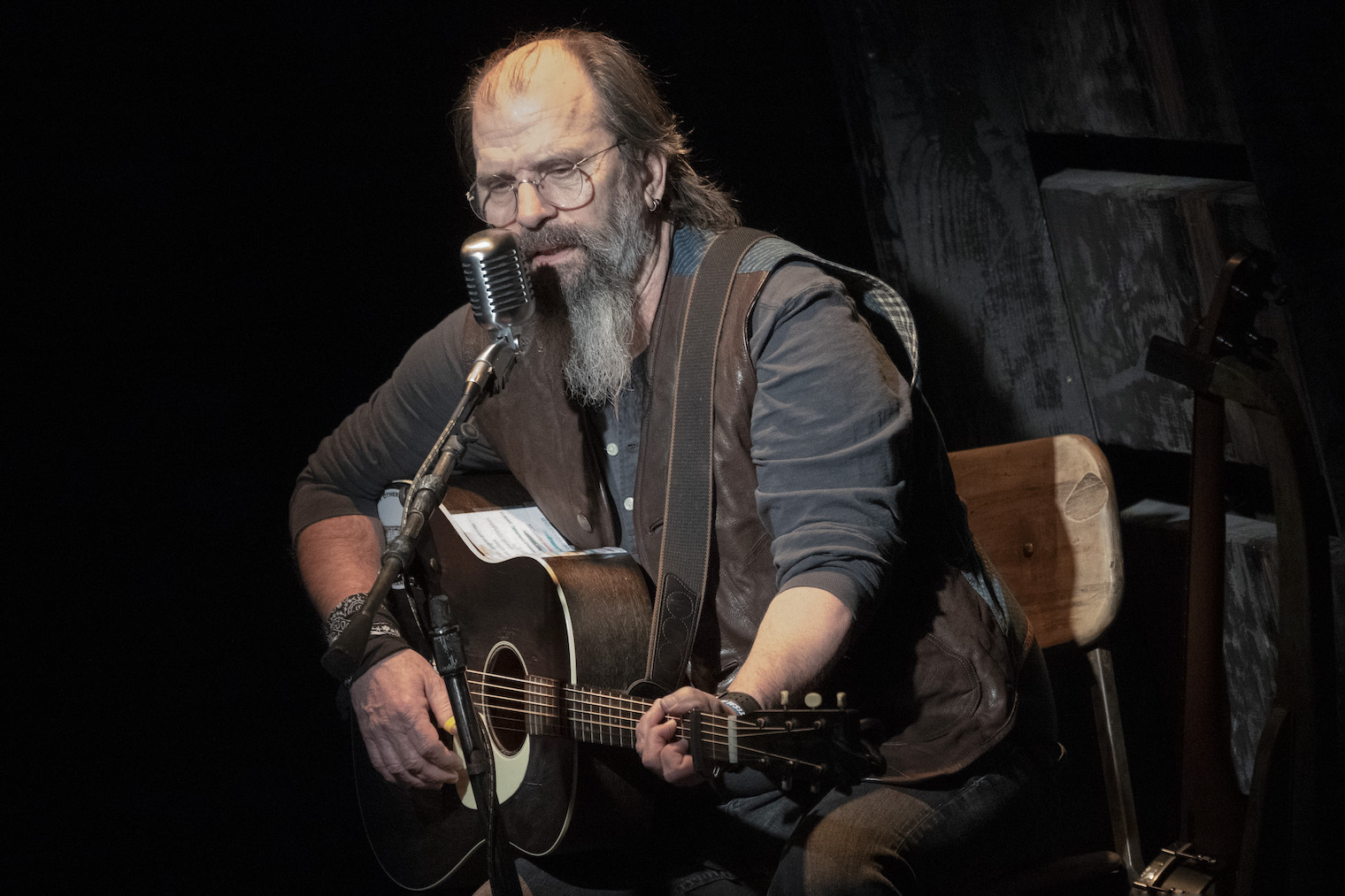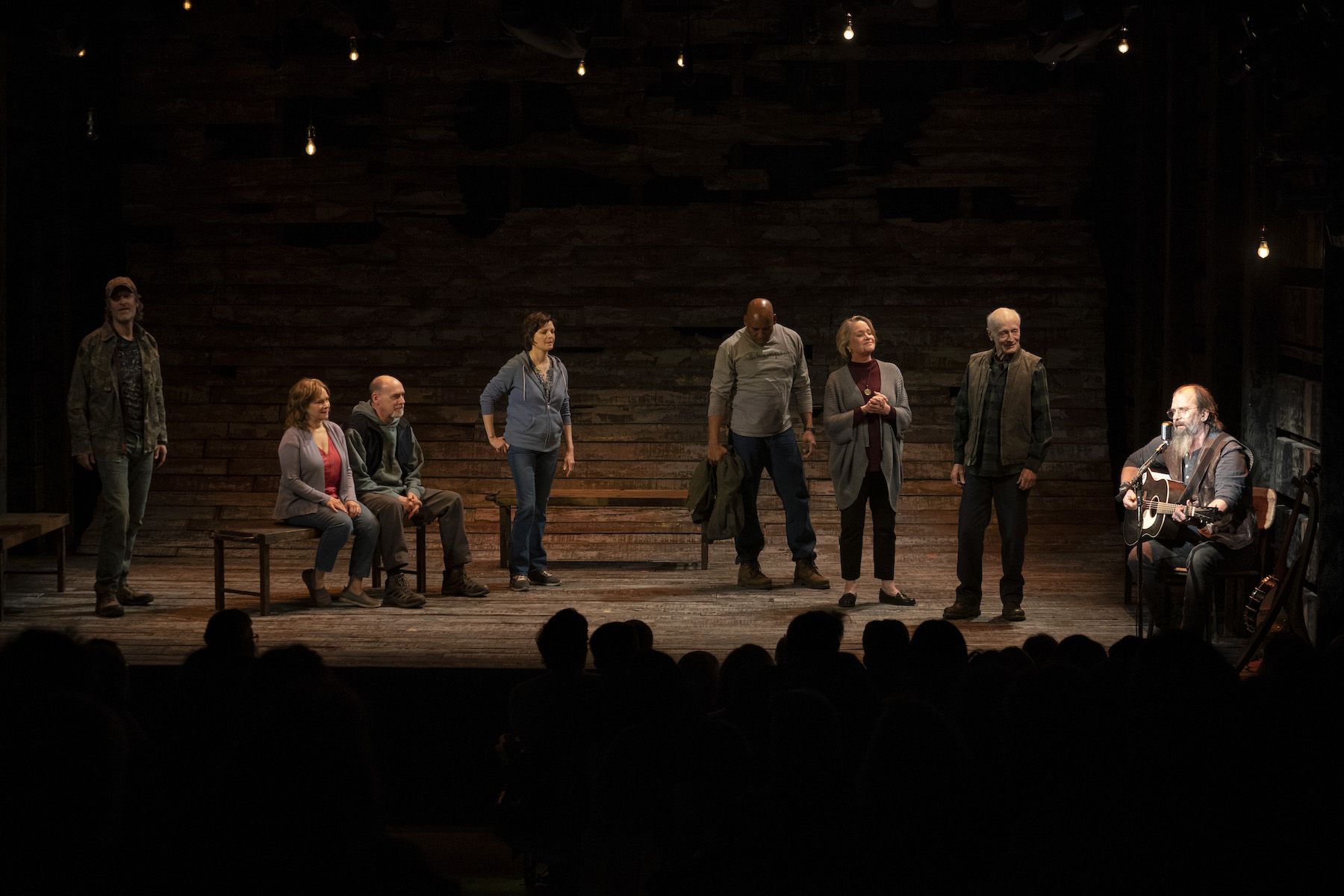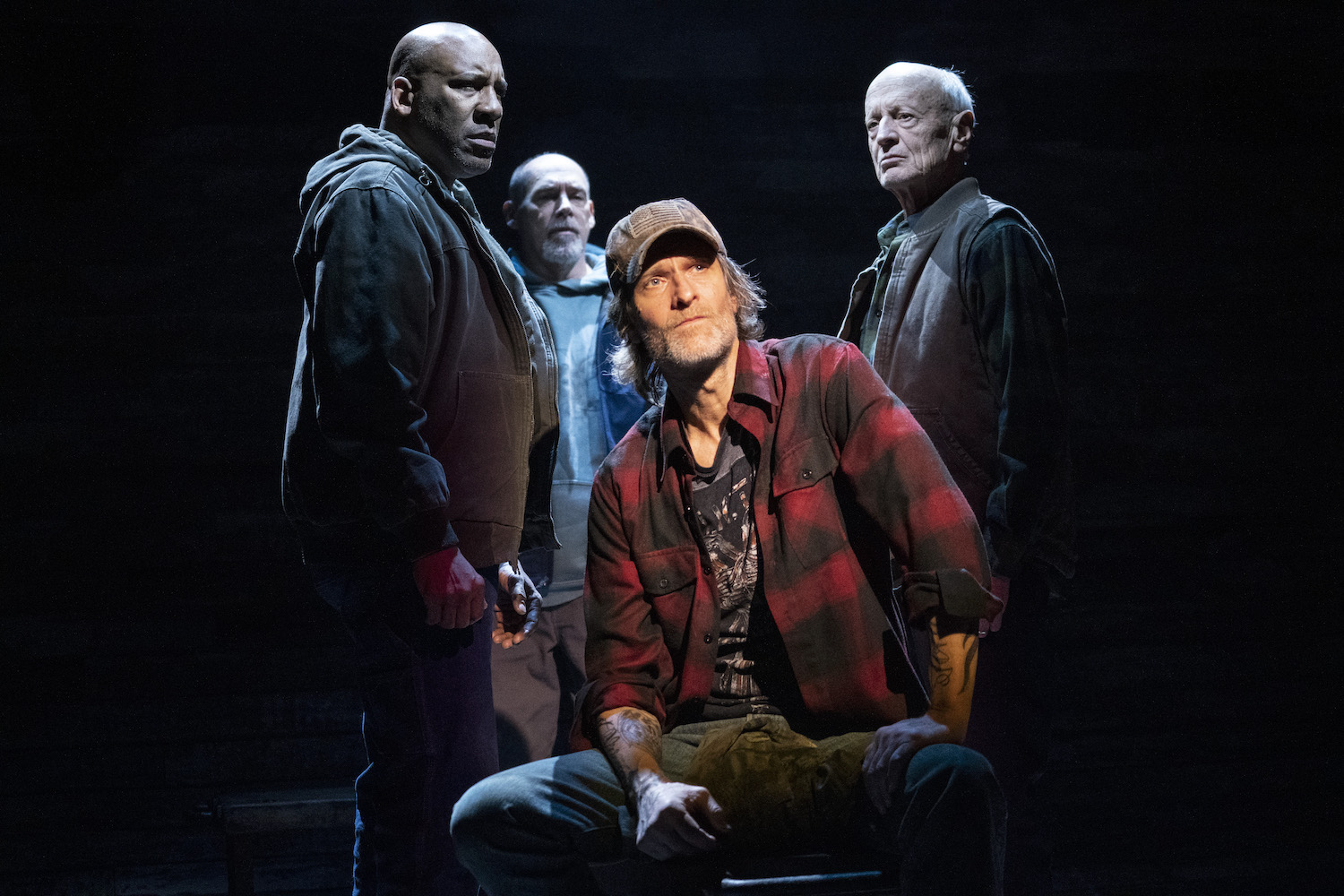*****/***** (five stars out of five)
Raleigh County, West Virginia may only be around 500 miles from New York City, but in social and socio-political terms, it may as well be 5000 miles away, with an enormous lifestyle gulf in between. The two places couldn’t be more different. But you’d never know it by the focused silence of audiences at Jessica Blank and Erik Jensen’s (the team responsible for 2000’s riveting The Exonerated) latest production, Coal Country, playing at The Cherry Lane Theater through April 17 in an Audible and Public Theater production.
Coal Country is the disturbing story of an accident at The Massey Coal Mine in 2009 which killed 29 people. You may remember it because it was a prominent news story at the time. But, like all such stories, the tragedy was complex and touched countless lives and destroyed a difficult, but accepted way of life in Raleigh County. We are introduced to the first major complication at the beginning of the play. A trial is the setting and its defendant is the CEO of Massey Energy, the now notorious Don Blankenship, who has just been convicted of the crime of conspiracy to violate mine safety laws, though not of all the other charges for which he’d been put on trial. Consequently, in one of those ugly twists of American jurisprudence, family members of the deceased are not allowed to make Victim Impact Statements because, as such, the judge has ruled that they are technically not “victims.” The assembled family members are outraged, of course, because, as is made clear by the play’s end, Blankenship is most certainly responsible for the deaths in the mine. So, instead of getting their moment of free expression in court, the seven central characters of Coal Country get to tell their story on stage to (ideally) the whole world.

This is a documentary play with music composed by the remarkable American rock, country and folk singer (and multiple Grammy winner) Steve Earle–whom many may know from the HBO series “The Wire,” in which he played the compassionate drug counselor/ex-addict Walon in an utterly remarkable performance. That same on-stage persona comes through here, too, starting with his opening song, “John Henry” (not to be confused with the Johnny Cash song of the same name), which talks about the hard working West Virginia coal miners who “voted for a union to a man/You’d never know it now but that was then.” And thus the stage is set for a tale about a community whose union is overcome by crafty corporations and who suffered the consequences of the ensuing safety lapses.

We meet a succession of people from the community and, bit by bit, they tell us their side of the story of the events leading up to and through the mine disaster. One man lost his father, another his sons and nephew, and one woman lost her new found partner whom she’d known for years, but had just discovered romantically. Every story, told piecemeal, is heartbreaking and the details as they seep out, are often horrific. The specter of injustice and corporate abuse is enraging. We get details of life in the mines, and descriptions of safety measures—the why and how of their function. When we hear that the new, non-union mines have eschewed many of these safeguards, we not only understand the impending doom, but that the workers understood, too, but continued to work in excruciating conditions. The community members who recount their stories are all excellently played by Mary Bacon, Amelia Campbell, Ezra Knight, Thomas Kopache, Michael Laurence, Deirdre Madigan and Carl Palmer.

Sections of the play are delineated by Earle’s absolutely outstanding musical numbers, some of which are sung by cast members, some by Earle alone on guitar or banjo, and there’s not a clunker in the bunch. His compositions are all beautiful, emotive and immediately catchy. Director Jessica Blank does an outstanding job creating a show that flows smoothly and never releases the tension, even in occasional lighter moments.
Tragedy, by definition, is avoidable. What makes the mining disaster at the Massey Mine especially galling is that it was not only avoidable, but that greed—the desire to extract as much high grade coal as quickly as possible for sheer profit (that would never benefit the workers, just Blankenship)—was wholly responsible for the absence of safety measures that led to those 29 deaths. And the fact that no one was ultimately held accountable is what makes the audience leave the theater in a state of shock. Theater doesn’t necessarily have to impart a lesson or deliver a social or political message, but when it’s done this well it makes the experience much, much more valuable. Coal Country is not to be missed.
Coal Country. Through April 17 at The Cherry Lane Theatre (38 Commerce Street, Greenwich Village, NYC) www.coalcountrymusical.com
For those who will not be able to attend Coal Country in person, a recording of the production is available at Audible.com
Photos: Joan Marcus












